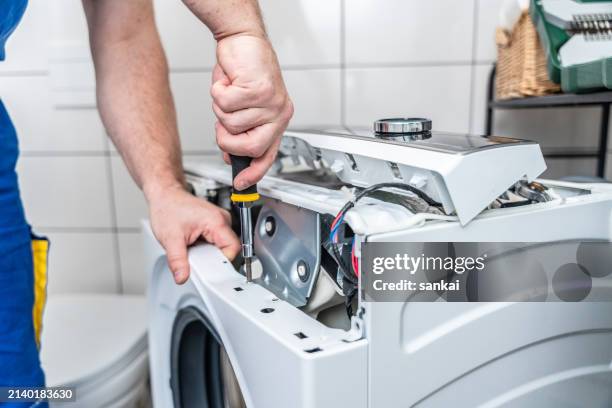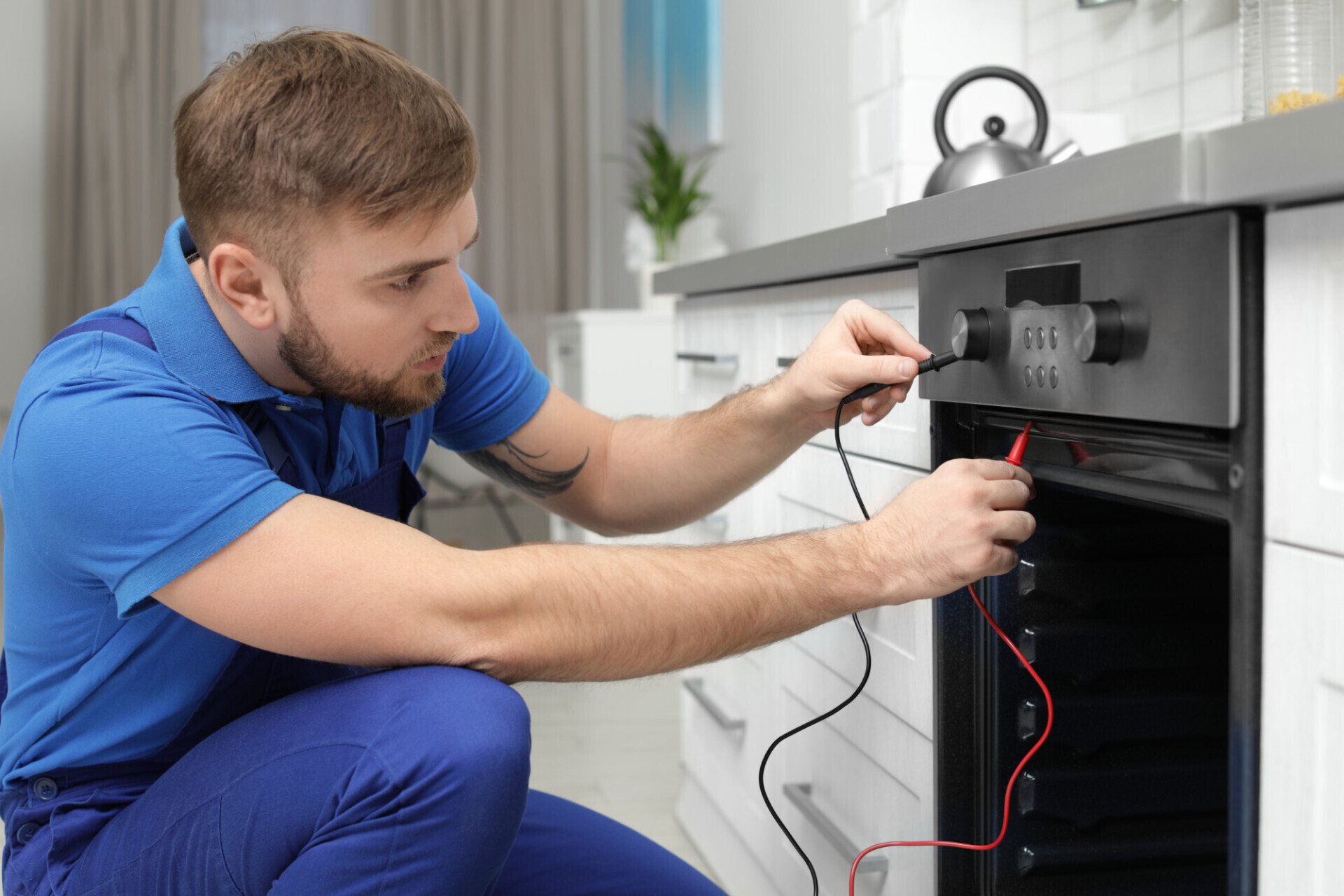Kenmore Dryer Not Heating? – Kenmore Dryer Repair Oro Valley Dependable Refrigeration & Appliance Repair Service
Kenmore Dryer Not Heating? – Kenmore Dryer Repair Oro Valley Dependable Refrigeration & Appliance Repair Service
Blog Article
The Ultimate Guide to Understanding Appliance Fixing at Home
When your fridge stops cooling or your oven rejects to warmth, it can feel overwhelming. Understanding appliance repair at home can save you money and time. You'll find out to acknowledge signs and symptoms, utilize vital devices, and follow a methodical troubleshooting process. Yet prior to you start, there are crucial safety preventative measures you need to take into account. What are the most common issues, and how can you fix them? Let's check out the basics.
Common Appliance Troubles and Their Signs and symptoms
When your appliances start acting up, it's vital to identify the signs beforehand. Disregarding them can result in bigger problems and pricey fixings. If your fridge isn't cooling down properly, you might see cozy spots or condensation forming. This can suggest a failing compressor or a blocked vent.Your dishwashing machine may reveal troubles via dirty recipes or unusual sounds throughout cycles. If you hear grinding or clanking, it's time to investigate.A washing device that won't rotate or drain pipes can leave you with soggy washing, suggesting a clogged up drain or a malfunctioning pump.Lastly, if your stove's temperature level appears off or it takes permanently to pre-heat, you could be dealing with a malfunctioning thermostat. By staying alert to these symptoms, you can deal with problems prior to they escalate right into significant repairs.
Necessary Tools for Appliance Repair Work
When you're tackling appliance repair services in the house, having the right tools is essential. Standard hand tools like screwdrivers and pliers will help you disassemble and fix different devices, while electric screening gadgets guarantee you're working securely with wiring. Allow's go over what you need to get begun on your repair work trip.
Standard Hand Tools
Having the right devices is necessary for reliable home appliance repair work at home. Start with a trusted screwdriver set, including both flathead and Phillips kinds, as screws are typical in device setting up. Pliers are additionally vital; they assist with gripping, turning, and cutting cords or small components. A pair of needle-nose pliers can reach tight areas conveniently. You'll need a great flexible wrench for tightening up or loosening up nuts and screws. An energy blade is helpful for reducing via product packaging or insulation. Finally, do not fail to remember a strong workbench or surface area to safely arrange your tools and parts. With these fundamental hand tools, you'll be well-prepared to take on most home appliance repair work that come your way.
Electrical Testing Gadgets
Alongside basic hand devices, electrical testing devices play an essential function in home appliance repair service. These tools aid you detect electric concerns and assurance devices work safely. A multimeter is important; it measures voltage, present, and resistance, enabling you to determine problems swiftly. A non-contact voltage tester is another must-have, allowing you spot online cords without making direct contact, improving your security. Secure meters are great for measuring current flow in wires without disconnecting them, saving you time and initiative. Furthermore, circuit testers can rapidly check if outlets are operating properly. By utilizing these tools, you'll streamline your troubleshooting process and improve your repair service skills, making device upkeep a whole lot less complicated.
Step-by-Step Overview to Diagnosing Home Appliance Issues
When your device breaks down, it can be frustrating, yet identifying the problem does not need to be frustrating. You'll learn to recognize usual problems and apply effective troubleshooting methods. Allow's go through the steps to get your home appliance back in working order.
Typical Home Appliance Troubles

Troubleshooting Methods Discussed

Repairing Major Kitchen Appliances: A Closer Look
Have you ever wondered just how to tackle usual problems with your kitchen area appliances? Repairing major kitchen area home appliances like fridges, ovens, and dishwashing machines can be much easier than you believe. Beginning by determining the problem-- whether it's a refrigerator not cooling down or a stove that will not heat. Often, a simple reset or examining the power resource can address the issue.For refrigerators, tidy the condenser coils and inspect the door seals. If your stove's not heating, evaluate the burner and thermostat. Dishwashing machines may just need a clean filter or a reset to get them back in action. Always unplug the appliance prior to diving into repair work to ensure your safety.Don' t neglect to seek advice from the user manual for specific troubleshooting pointers associated to your version. With a little patience and the right devices, you can with confidence deal with appliance repair services and conserve cash at the same time!

Fixing Laundry Equipments: Tips and Techniques
When your washing home appliances start acting up, it can really feel frustrating, but repairing them does not need to be a problem. Beginning by inspecting the power supply. Verify the home appliance is connected in and the outlet is operating. Next, evaluate the door or lid button; a faulty button can stop the machine from operating.For washers, if it's not rotating, examine for out of balance tons. Redistributing the clothing could fix the problem. If your dryer isn't heating, clean the lint filter and examine the vent for blockages.Listen for unusual noises; they can suggest an issue. If your home appliance is dripping, examine the tubes for cracks or loose connections. File any type of error codes displayed on digital displays, as they can lead you in identifying the issue. Consult the individual handbook for specific troubleshooting ideas related to your model.
Security Precautions to Take During Repairs
Before you start any type of appliance repair services, it's crucial to prioritize safety and security to avoid accidents or injuries. Disconnect the device or turn off the circuit breaker to assure no power reaches it while you function. Use protected devices to lessen the threat of electric shock. Put on safety and security goggles and handwear covers to shield yourself from sharp sides or debris (Dependable Refrigeration & Appliance Repair Service Washer repair near me).Make certain your workspace is neat and well-lit, so you can see what you're doing. Keep children and animals far from the area to avoid interruptions and potential dangers. If you're dealing with gas appliances, be additional careful; check for leaks prior to proceeding.Take your time, and don't rush with repair services. If you really feel unsure concerning any kind of step, it's better to stop briefly and research study than to presume. Adhering to these precautions Bonuses will certainly assist produce a more secure setting for your DIY home appliance repair work job
When to Call a Professional for Aid
Exactly how do you recognize if it's time to employ an expert for home appliance repairs? If you've attempted standard troubleshooting without success, it's a clear sign. If your appliance still will not start or shows unusual noises after resetting it, don't hesitate to look for specialist help.When you see leaks, smoke, or shedding scents, prioritize safety and security and learn this here now call a pro immediately. These problems can bring about even more significant damage or pose threats to your home.Also, if your home appliance is under guarantee, getting in touch with a professional is often the best course. They can guarantee that repair services won't nullify your guarantee, saving you cash in the long run.Finally, if you're uncertain or unpleasant with complex repairs, it's important to leave it to the specialists. Remember, tackling complex problems without the ideal proficiency can cause costly errors. Depend on an expert when in question!
Often Asked Questions
How Can I Stop Appliance Problems in the Future?
To stop home appliance troubles in the future, you must carry out routine maintenance, check for deterioration, clean filters, and prevent overloading. Remaining proactive will aid expand their life-span and maintain them running efficiently.
What Are one of the most Typical DIY Appliance Fixing Mistakes?
You could forget security precautions, miss repairing actions, or make use of inaccurate tools when trying DIY home appliance repair work. Hurrying the process or ignoring supplier standards can cause even more substantial problems and costly errors. Remain patient and informed!
Just how Do I Know if a Part Demands Substitute?
You can inform if a part needs substitute by examining for unusual sounds, leaks, or irregular efficiency. If the appliance has a hard time to operate properly or shows visible damage, it's most likely time for a replacement.
Can I Make Use Of Generic Components for Appliance Repairs?
Yes, you can use common components for appliance repairs, however identify they're compatible - Kenmore Dryer Repair Oro Valley Dependable Refrigeration & Appliance Repair Service. Common components could save you money, yet they can impact performance or longevity, so consider your options thoroughly before deciding
What Service Warranties Cover Home Appliance Repairs?
Many appliance service warranties cover repair work for manufacturing problems, but they usually omit damages from misuse. Inspect your warranty terms meticulously, as some might require using qualified professionals and initial parts for protection to stay valid.
Report this page